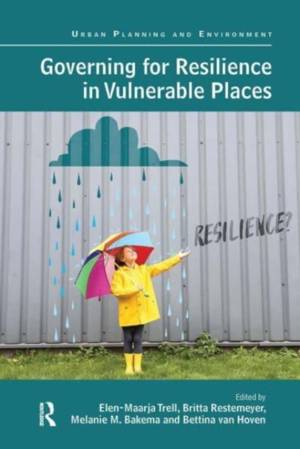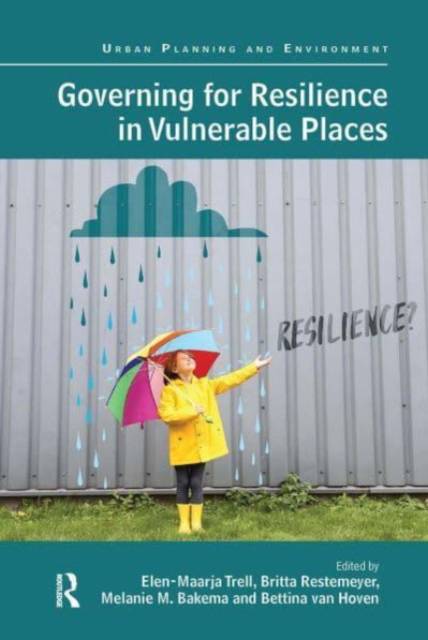
- Retrait gratuit dans votre magasin Club
- 7.000.000 titres dans notre catalogue
- Payer en toute sécurité
- Toujours un magasin près de chez vous
- Retrait gratuit dans votre magasin Club
- 7.000.0000 titres dans notre catalogue
- Payer en toute sécurité
- Toujours un magasin près de chez vous
Governing for Resilience in Vulnerable Places
Description
Governing for Resilience in Vulnerable Places provides an overview and a critical analysis of the ways in which the concept 'resilience' has been addressed in social sciences research. In doing so, this edited book draws together state-of-the-art research from a variety of disciplines (i.e. spatial planning, economic and cultural geography, environmental and political sciences, sociology and architecture) as well as cases and examples across different spatial and geographical contexts (e.g. urban slums in India; flood-prone communities in the UK; coastal Japan). The cases present and explore challenges and potentials of resilience-thinking for practitioners and academics. As such, Governing for Resilience in Vulnerable Places aims to provide a scientifically robust overview and to generate some conceptual clarity for researchers, students and practitioners interested in the potential of resilience thinking as well as the application of resilience in practice.
Spécifications
Parties prenantes
- Editeur:
Contenu
- Nombre de pages :
- 282
- Langue:
- Anglais
- Collection :
Caractéristiques
- EAN:
- 9781032476629
- Date de parution :
- 21-01-23
- Format:
- Livre broché
- Format numérique:
- Trade paperback (VS)
- Dimensions :
- 156 mm x 233 mm
- Poids :
- 639 g

Les avis
Nous publions uniquement les avis qui respectent les conditions requises. Consultez nos conditions pour les avis.





